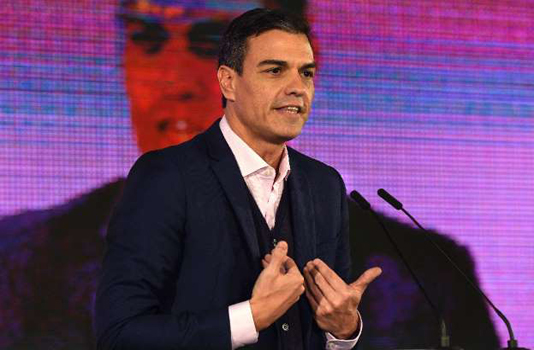HAVANA, Nov 23, 2018 (BSS/AFP) – Spain’s Prime Minister Pedro Sanchez
maintained his threat to scupper Britain’s draft deal to exit the European
Union following a meeting with UK counterpart Theresa May on Thursday.
“After my conversation with Theresa May, our positions remain far away. My
government will always defend the interests of Spain. If there are no
changes, we will veto Brexit,” Sanchez wrote on Twitter after arriving for a
historic state visit to Cuba.
Madrid is seeking a guaranteed veto on post-Brexit relations between the EU
and Gibraltar, the British enclave on Spain’s southern tip.
Spain wants to retain what it sees as its right to negotiate the future of
Gibraltar with Britain on a bilateral basis, which would give it an effective
veto.
An original clause in the draft deal stipulated that after the UK left the
bloc, any agreement between Britain and the EU could only apply to Gibraltar
if it had previously been negotiated on a bilateral basis with Spain.
However that clause has since disappeared form the final draft.
Although the legal service of the EU Council has tried to reassure Spain
that the current text does not preclude this, Madrid wants that veto power
clearly spelled out.
May is due to sign a treaty with EU leaders to leave the bloc on Sunday,
but Spain holds the power to prevent that from happening.
“The negotiations are now at a critical moment, and all our efforts must be
focused on working with our European partners to bring this process to a
final conclusion,” May told Britain’s parliament, defending her draft deal.
Gibraltar is a tiny 2.6 square mile (6.8 square kilometer) territory that
is home to about 30,000 people.
It was ceded to the British crown in the 1713 Treaty of Utrecht that ended
the War of the Spanish Succession with a more general agreement to preserve
the balance of power in Europe.
Earlier on Thursday, Gibraltar’s chief minister accused Spain of being
heavy-handed.
“Spain does not need a veto to get us to a table,” Fabian Picardo told the
local parliament.
The eurozone’s fourth-largest economy “does not need a whip to get the
smallest economy in Europe to sit around the table with it and have a
meaningful discussion about cooperation,” he added.



